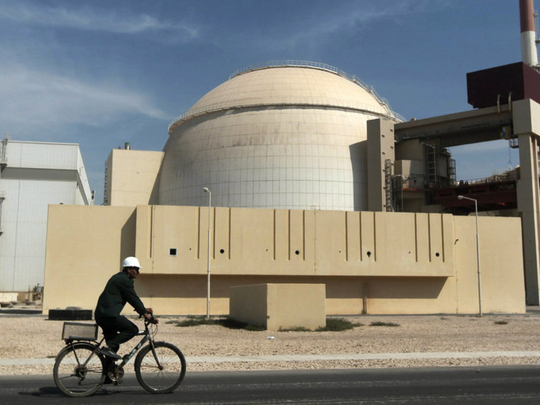
The vote in the US Congress on the Iran nuclear deal is still a few weeks off, but across the United States, the debate surrounding it has become increasingly bitter even as the outcome (a backhanded approval) seems increasingly clear.
Hyperbolic television and internet ads warn that a vote in favour of the agreement is a vote to give Iran nuclear weapons. US President Barack Obama has framed the choice facing members of Congress as one between supporting the agreement and eventual war. The contrast between Europe, where the Iran nuclear deal is nearly universally regarded as a positive thing, and the United States is striking.
Under a deal brokered between Obama and Congressional Republicans, the agreement (officially known as the JCPOA, or Joint Comprehensive Plan of Action) is not being submitted to the Senate as a treaty, which would require a two-thirds vote for approval. Instead, both houses of Congress will have the opportunity to pass motions expressing disapproval of the agreement. Obama, as President, can then veto these measures meaning that the US would only formally pull out of the deal if a two-thirds majority of both the House and the Senate can be mustered to override him.
This complex, and rather unique, arrangement seems increasingly likely to result in the JCPOA’s survival (though it remains a close-run thing and we probably will not know for certain until the override vote takes place in mid-September), since it looks increasingly likely that most Democrats will stick with Obama when the time comes to sustain or override his veto.
What has been fascinating about this debate is its growing focus on questions the JCPOA never sought to address: Can Iran be trusted? Why should it have any nuclear programme at all? Why weren’t a long list of American grievances regarding Iranian behaviour and ideology placed at the centre of the negotiating agenda? Why didn’t negotiators drive a harder bargain?
For many opponents, however, it really comes down to something even more basic: Should America — or anyone else — be talking to the Iranian government at all? The answer to that question may seem self-evident: Until every alternative has been exhausted, diplomacy is almost always preferable to conflict. For many of the JCPOA’s opponents, however, the answer is just as unequivocally, and just as obviously, ‘no.’
This should not be surprising. Over New Year, I attended a conference where I shared a panel on Iran with Jerrold Nadler, a Democratic Congressman who represents a chunk of New York City. At that moment, when the US and other nations were talking with Iran, but the question of whether any agreement could be reached remained very much open, the division between the panel and the audience was stark. The six or eight of us at the front of the room (all chosen for our expertise on Middle East affairs) all believed that an attempt to reach a nuclear deal was worth the effort. The 60 or 70 people in our audience mostly disagreed.
Late last month, Nadler came out in favour of the JCPOA, albeit a bit reluctantly (his press release explaining his decision ran to more than 5000 words). The response has been so vitriolic that even some of the nuclear deal’s opponents have called on Nadler’s critics to back off. At one point last week, a member of New York’s state legislature rented a double-decker bus, plastered it with a huge picture of Iranian Supreme Leader Ayatollah Ali Khamenei “thanking” America for supporting the deal and parked it in front of Nadler’s office.
These are not the signs of a rational discussion of America’s national security policy, but that, in turn, probably should not come as a surprise. It has become common in some circles to equate modern Iran with Nazi Germany. The analogy is ridiculously overdrawn, but if one takes it as a starting point then it is easy to conclude that anyone willing to deal with Iran is, in effect, Neville Chamberlin — and once one has made that leap it is hard for any serious discussion to take place.
There are arguments against the JCPOA: It is too vague in places, releases a very large amount of money to a country with a record of bad behaviour around the region and in the wider world and is vague about what happens if, 15 years from now, Iran plunges ahead with its nuclear programme. The provisions for reimposing global sanctions on Iran if it cheats assume a degree of international cooperation that can be difficult to imagine.
Amid the hyperbole and vitriol, however, few of those arguments are actually being made in Washington today. That may yet win opponents of the JCPOA a victory in Congress, but dumbing down the debate over a crucial national security issue makes rational debate even more difficult in an already over-partisan America.
Gordon Robison, a longtime Middle East journalist and US political analyst, teaches political science at the University of Vermont.








